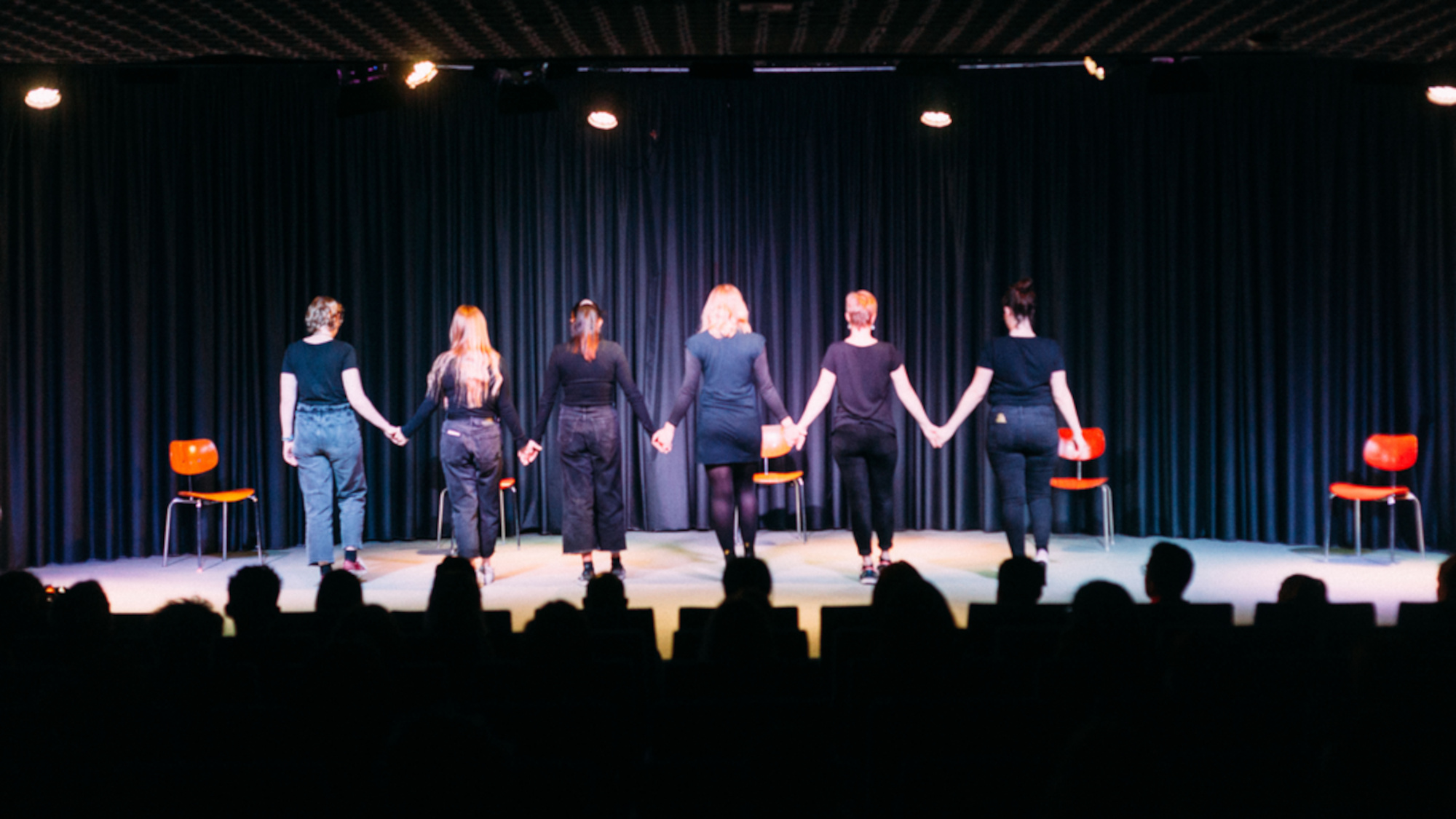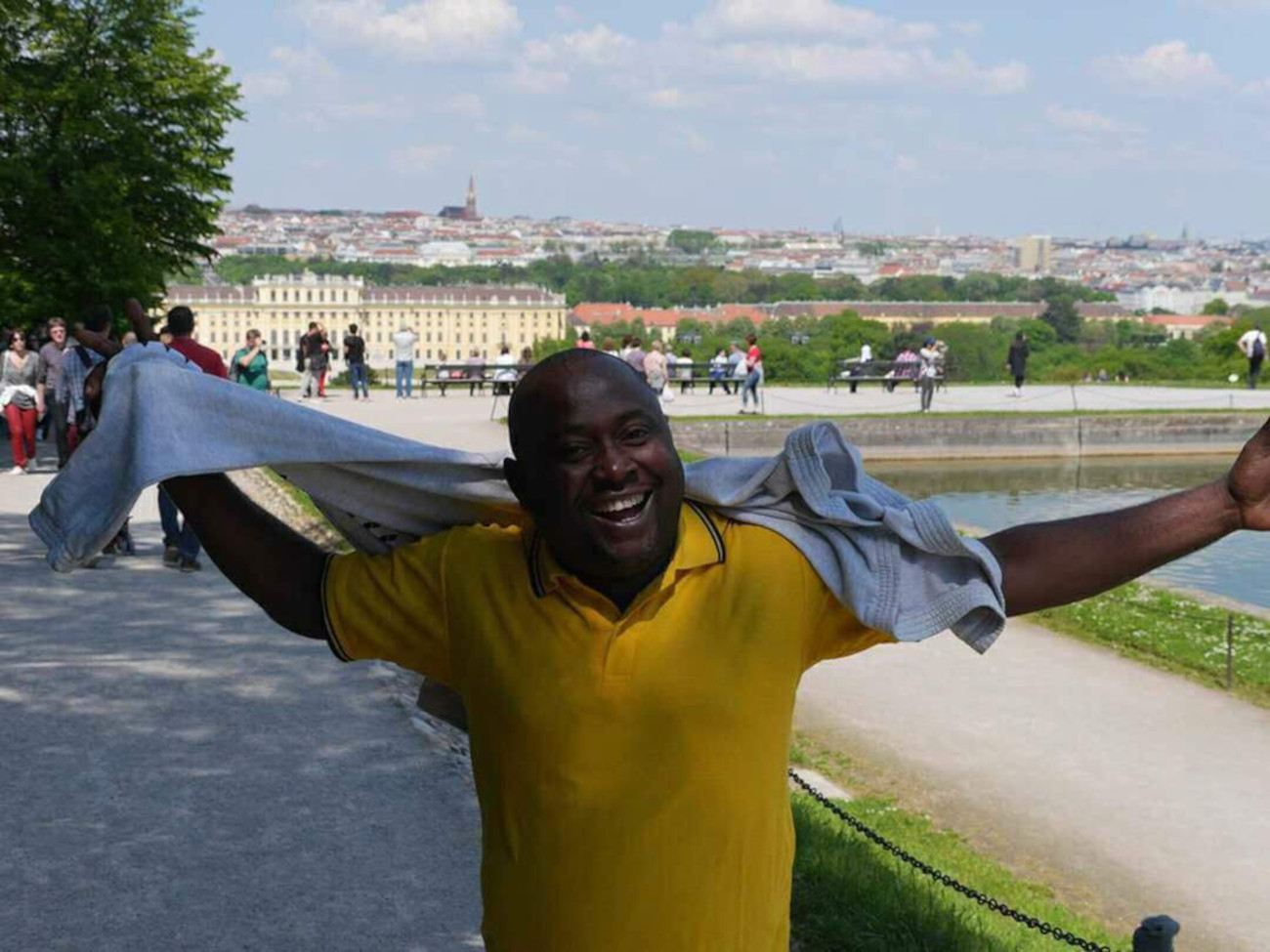
© Saharaui Lemina El-Cheik
Creative Bridge Building: Theater Workshop with a Difference
Equatorial Guinean artist offers students at the University of Bremen an insight into his creative process
In academia, it is not very often that art and culture play such a significant role as in the “INPUTS Artist / Writer in Residence” program at the University of Bremen. Initiated by Kerstin Knopf and organized by the Institute for Postcolonial and Transcultural Studies (INPUTS), this interdisciplinary forum was established in 2007 and offers students a close-up insight into the creative process of artists from all over the world.
One of the recent highlights of the program was the visit of Recaredo Silebo Boturu, or simply Boturu, as the artist calls himself. He comes from Equatorial Guinea, a Central African country that was under Spanish colonial rule until 1968. It is the only country on the African continent where Spanish is the official language.
Originally planned for 2020, Boturu’s visit had to be postponed due to the COVID-19 pandemic. But in 2023 the time had come. Boturu, a poet, playwright, and actor, offered the students a workshop that was very different from the ones before. Instead of the usual creative writing workshop, the organizers Kerstin Knopf and Julia Borst decided to offer a theater workshop in Spanish for the first time. A decision that paid off.
For him, the visit was a great experience: “My time in Germany felt like a flight into the unknown, but I was driven by curiosity and an eagerness to learn. It was a kaleidoscope of new cultures, colors, and flavors that unfolded before me. Working with the students was a gift. Their openness and willingness to listen and learn mirrored my own feelings. This workshop was an opportunity not only for me, but also for the students to broaden our skills and perspectives. I cannot emphasize enough how valuable the INPUTS Artist / Writer in Residence program is: It provides a unique platform for cross-cultural exchange where both artists and students can learn from each other and grow,” said the artist.

© Max Doppelbauer
Boturu’s workshop finished with the (Des)conectadxs performance. Far from being a traditional theatrical performance, the mixture of performance and theater focused on communication beyond words.
For Victoria Ropero Ortigosa, one of the workshop participants, it was a wonderful experience: “Theater is a great way to connect with other people and this workshop allowed us to connect with people from other cultures. It taught us that communication is much more than just words. Boturu’s direction was very special, he taught us that things don’t have to happen in a certain order, that we are free to experiment, try things out, realize an idea but then also discard it, that everything is allowed in theater.”
Another guest in the 2023 summer semester alongside Boturu was the Haitian-Canadian writer Marie-Célie Agnant, whose stay was organized by Karen Struve and Kerstin Knopf. Her “Autour du conte, au tour du conte” writing workshop with students from Bremen resulted in a public reading at the Institut français Bremen. INPUTS is already looking ahead. They have announced more exciting guests for the coming year: Melba Boyd (African American poetry) and Anthony Brunt, who deals intensively with German colonialism in Samoa.
The Artists / Writers in Residence program at the University of Bremen impressively demonstrates how academic and artistic exchange can enrich each other. The program is a perfect example of how versatile and interdisciplinary modern university education can be. The INPUTS Artist / Writer in Residence program is funded through Kerstin Knopf’s Chair of North American and Postcolonial Literary and Cultural Studies. Boturu’s stay was additionally supported by Julia Borst as part of her “The Spanish Black Diaspora: Afro-Spanish Literature of the 20th and 21st century” research project, funded by the German Research Foundation (DFG).